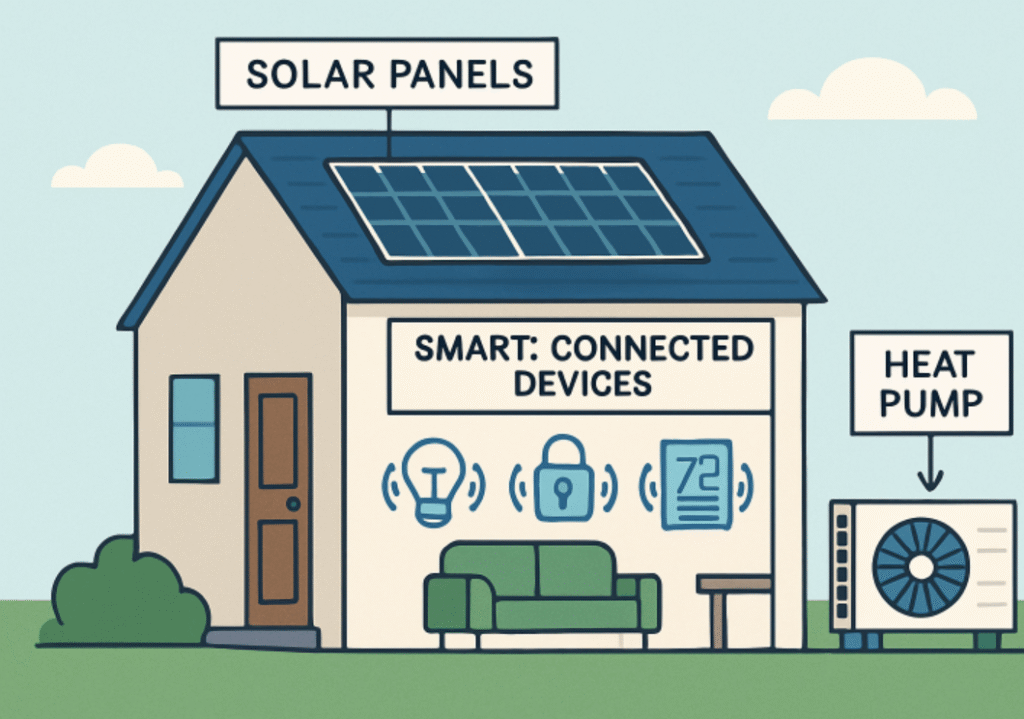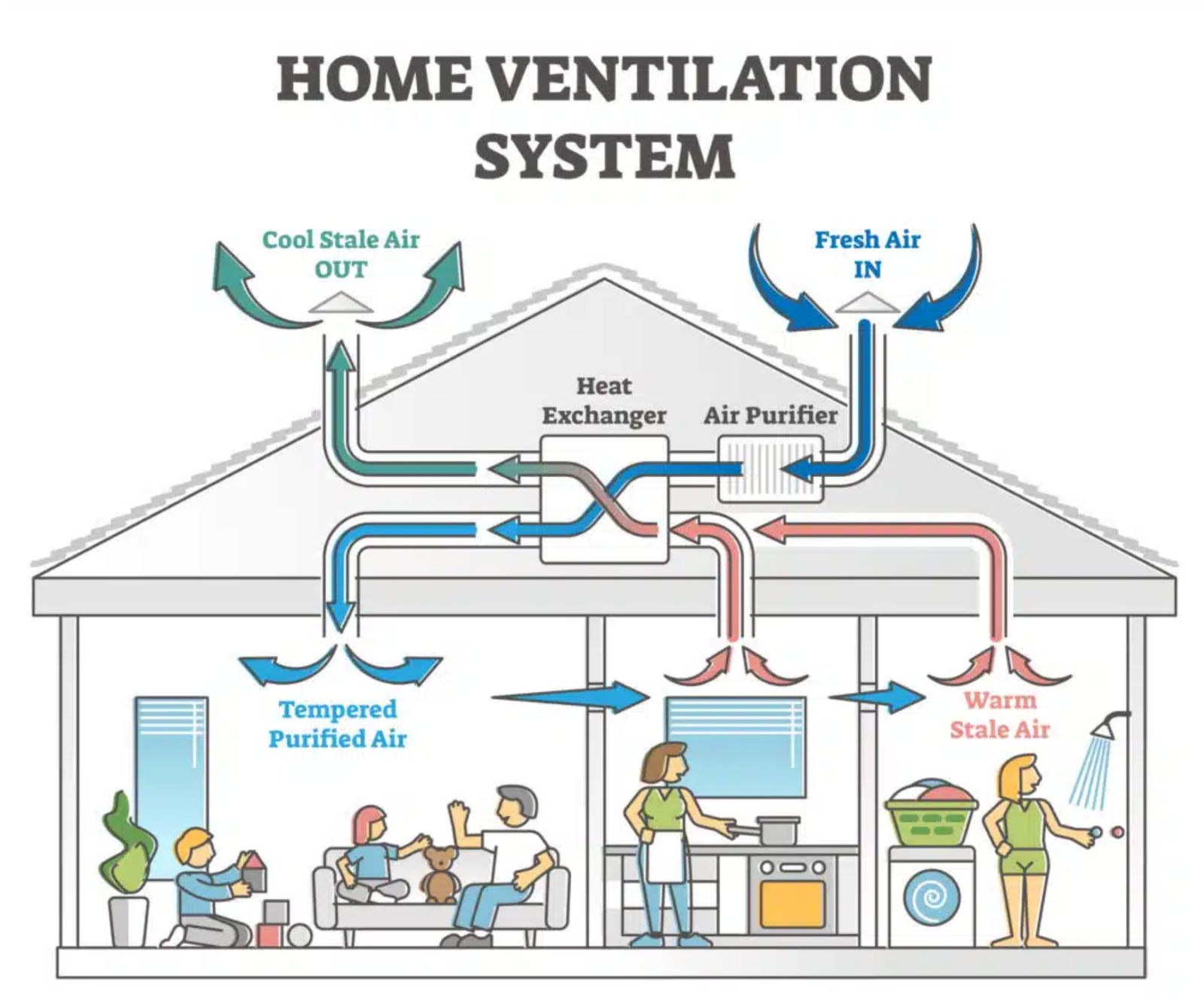Universal HVAC systems are ushering in a new era of home energy efficiency, blending innovative smart technology with sustainable, future-ready design. By seamlessly integrating components that adjust and learn from user behavior, these systems not only improve comfort but also significantly reduce energy waste. For homeowners considering an upgrade, browsing options for air conditioner heat pumps online reveals how accessible these advancements have become—even for average homes.
A combination of advanced monitoring, eco-friendly technologies, and better integration with renewable energy sources essentially drives the momentum behind universal HVAC systems. These advances mean homes are not only more energy efficient but also more resilient against changing environmental conditions. As a result, more homeowners are opting for these cutting-edge solutions to minimize costs and maximize value.
Unlike older systems, which often run inefficiently or lack innovative functions, the latest universal HVAC systems are designed to adapt to occupants’ preferences and schedules proactively. This ensures that comfort is never sacrificed while simultaneously reducing immense amounts of wasteful energy consumption. Industry experts consider this technology not just a luxury but an investment that pays dividends in savings, comfort, and sustainability.
Recent market analysis indicates that these advanced systems are being rapidly adopted nationwide, a trend driven by rising energy costs and heightened awareness of environmental impact. Government incentive programs and new regulatory standards have further encouraged this transition, accelerating innovation in the sector..
Advancements in Smart HVAC Technologies
Modern HVAC systems are increasingly driven by cutting-edge technology, prioritizing efficiency and convenience. By leveraging the Internet of Things (IoT) and artificial intelligence (AI), these systems monitor energy consumption in real-time, identify performance gaps, and automatically adjust operations to maintain optimal conditions. Smart thermostats exemplify this innovation, learning a household’s daily patterns and preferred temperatures to optimize comfort while reducing energy waste. Beyond individual homes, such technology enables predictive maintenance, alerts for potential issues, and seamless integration with other smart devices, creating an adaptive, eco-friendly, and cost-effective approach to climate control in residential and commercial spaces.

According to reporting from The Washington Post, this next generation of HVAC technology will play a pivotal role in decarbonizing the energy grid, lowering utility bills, and ultimately reducing residential carbon footprints.
Eco-Friendly Refrigerants and Heat Pumps
Environmental responsibility is another area where universal HVAC systems stand apart. Traditional refrigerants, known for their high global warming potential, are being phased out in favor of greener alternatives, such as R-32 and R-454B. Additionally, state-of-the-art heat pumps are fast replacing conventional fossil fuel heating, offering significant gains in efficiency and sustainability. These electric-powered units can both heat and cool, making them ideal for all-season comfort.
In fact, heat pumps outsold gas furnaces for the second consecutive year, a shift highlighted by a comprehensive analysis from NYSERDA. Homeowners are benefitting from this transition by saving money on energy bills and positioning their homes for a future with stricter environmental standards.
Integration with Renewable Energy Sources
A groundbreaking development in home climate control is the integration of universal HVAC systems with renewable energy sources, including solar panels and wind turbines. These systems enable households to harness clean, sustainable energy, thereby significantly reducing their dependence on the traditional electrical grid and fossil fuels, especially during periods of high energy demand. Hybrid configurations, which combine advanced heat pumps with solar power, have shown remarkable efficiency improvements—sometimes exceeding 50% compared to standard, standalone HVAC units. Beyond boosting performance, this synergy provides tangible financial benefits by reducing monthly utility bills and shielding homeowners from fluctuations in fuel costs and unexpected power outages. As energy prices continue to rise and environmental concerns intensify, adopting integrated, renewable-powered HVAC solutions represents a wise and forward-thinking investment in both sustainability and long-term energy resilience.
Predictive Maintenance and AI-Driven Monitoring
Predictive maintenance is revolutionizing HVAC system performance by shifting from reactive to proactive care. Using AI-driven monitoring, these systems continuously track operational data, identify patterns, and detect early signs of potential issues before they escalate into expensive failures. This allows repairs and servicing to be scheduled precisely when necessary, minimizing unexpected downtime and reducing costly emergency interventions. Homeowners benefit not only from smoother system operation but also from an extended equipment lifespan. Studies, including recent findings from arXiv, demonstrate that homes equipped with AI-enabled predictive controls achieve significant energy efficiency improvements—up to a 19% reduction in daily heating energy use and a 38% decrease in backup heat usage. These innovations enhance comfort, lower utility costs, and support sustainable, reliable home climate control.
Benefits for Homeowners
• Enhanced Comfort: Smart features provide granular temperature control, air purification, and humidity management for a healthier indoor climate.
• Lower Energy Costs: Efficient operation and renewable integration trim monthly utility bills—often by hundreds of dollars per year.
• Environmental Impact: Adoption of green refrigerants and lower energy use reduces a home’s carbon footprint, supporting global climate goals.
• Property Value: Modern energy systems make homes more attractive to buyers and may qualify for local rebates, adding instant equity.
Conclusion
Universal HVAC systems are revolutionizing home climate control by combining cutting-edge technology with energy-conscious design. These systems provide intelligent control of heating, cooling, and ventilation, ensuring optimal comfort while minimizing energy consumption. Homeowners who adopt these eco-friendly solutions benefit from reduced utility bills, improved indoor air quality, and enhanced property value. Beyond personal benefits, selecting universal HVAC systems contributes to broader environmental goals by reducing carbon footprints and promoting sustainable living practices. As innovation in this field accelerates, features such as smart sensors, adaptive learning, and integration with renewable energy sources are becoming more accessible. The continued adoption of these systems promises not only greater convenience and luxury but also a measurable, positive impact on both financial efficiency and planetary health for generations to come.
